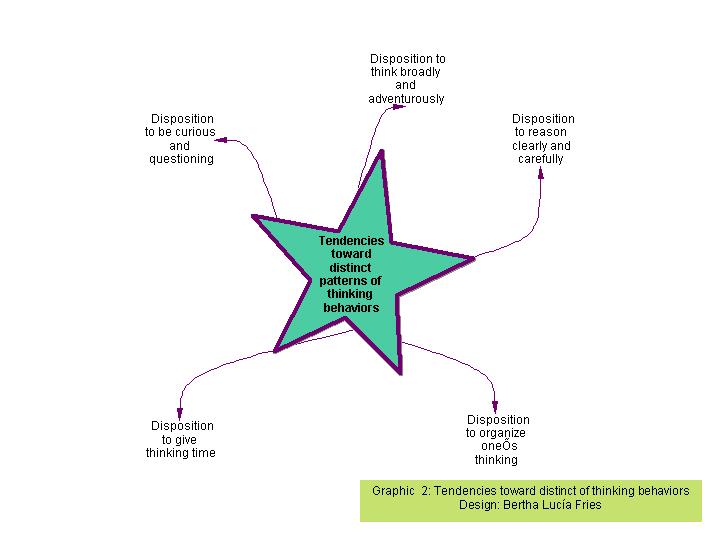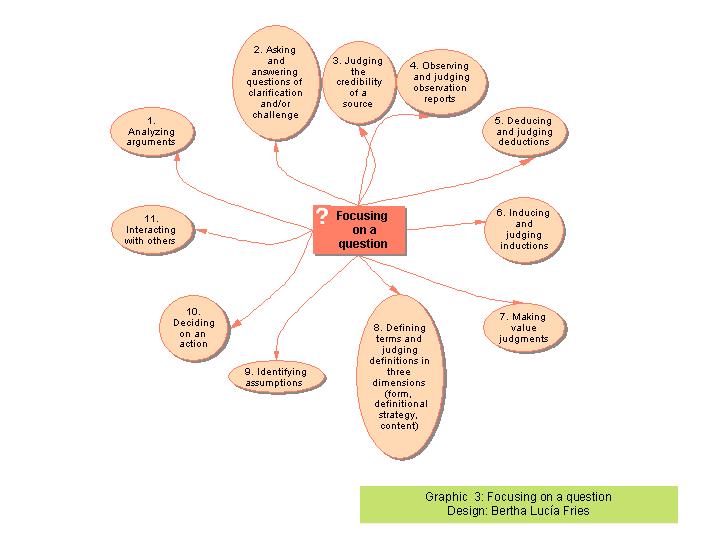Critical Thinking
WHAT is it? – Critical Thinking is reasonable, reflective thinking that is focused on deciding what to believe or do. This definition does not exclude creative thinking.
WHO is it for? – Any person in any profession or any circumstance of life can practice critical thinking. From science to arts, from business to teaching, critical thinking skills create a more efficient thinker and problem solver. Good thinkers explore, inquire, probe, into new areas, seek clarity, think critically and carefully, are organized thinkers. Use thinking powers in productive and probing ways.
WHY use this method? – We want to be clear about what is going on, to have reasonable basis for a judgment and make reasonable inferences. We want interaction with other people to be sensible and we want the dispositions to be operative.
Critical thinking involves both dispositions and abilities:
(See Graphic 1)
Source: Ennis (1987)
Critical Thinking Dispositions
- Seek a clear statement of the thesis or question
- Seek reasons
- Try to be well informed
- Use and mention credible sources
- Take into account the total situation
- Try to remain relevant to the main point
- Keep in mind the original and/or basic concern
- Look for alternatives
- Be open minded: a. Consider seriously other points of view (dialogical thinking); b. Reason from premises with which one disagrees, without letting the disagreement interfere with one’s reasoning (suppositional thinking); c. Withhold judgment when the evidence and reason are insufficient.
- Take a position/change a position when the evidence and reasons are sufficient to do so
- Seek as much precision as the subject permits
- Deal in an orderly manner with the parts of a complex whole
- Use one’s critical thinking abilities
- Be sensitive to the feelings, level of knowledge, and degree of sophistication

Tendencies toward distinct patterns of thinking behaviors
(See graphic 2)- Disposition to be curious and questioning
- Disposition to think broadly and adventurously
- Disposition to reason clearly and carefully
- Disposition to organize one’s thinking
- Disposition to give thinking time

Critical Thinking Abilities
(See graphic 3)- Focusing on a question
- Analyzing arguments
- Asking and answering questions of clarification and/or challenge
- Judging the credibility of a source
- Observing and judging observation reports
- Deducing and judging deductions
- Inducing and judging inductions
- Making value judgments
- Defining terms and judging definitions in 3 dimensions (a. form, b. definitional strategy, c. content)
- Identifying assumptions
- Deciding on an action
- Interacting with others

Associated Pages
- Reasoning
- Metacognition
- Heuristics
- Constructivist Listening
- Seven Sins of Memory
- The R’s of the CCT Experience
- The Novice Sage Manifesto
References
(Original page based on compilation by Mary Frangie)